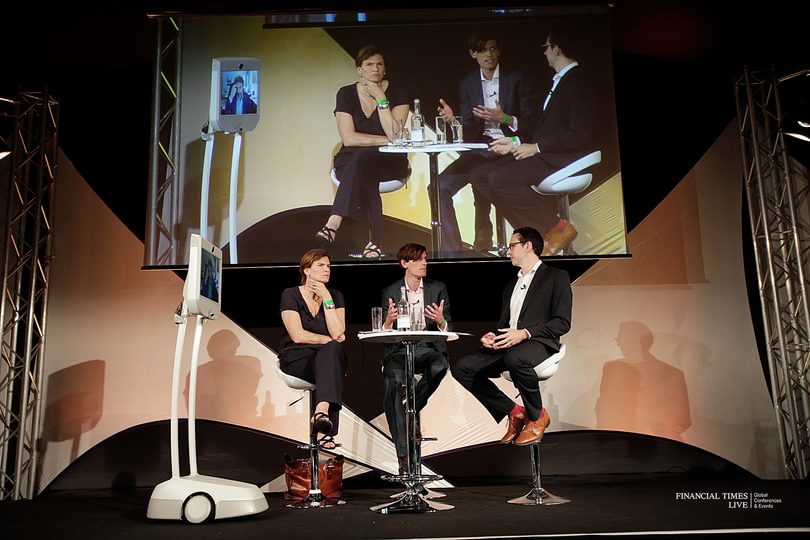
The Financial Times's Camp Alphaville was billed as providing 'Peace. Love. Higher Returns' and as being like a 'festival for finance': it didn't disappoint. Taking place in a giant tent in London, containing igloos, a magician and a bar, the event was an attempt to foster wide-ranging discussion on the economic trends shaping our future. I had been invited to take part in a panel discussion on the topic of 'All your jobs belong to the robots' alongside Mariana Mazzucato, RM Phillips Professor in the Economics of Innovation, Science Policy Research Unit (SPRU), Sussex University, and Erik Brynjolfsson, Director of the MIT Initiative on the Digital Economy, and author of 'The Second Machine Age' and 'Race against the Machine'. Fittingly, Erik appeared via telepresence robot.
Our discussion focussed on the causes and consequences of innovation. Eric argued broadly that innovation is accelerating and will have enormous social and economic impact; Mariana's thesis is that continuing innovation will require extensive public investment absent from modern economies (Mariana has blogged her own account of the event). Our own work, as described in an Oxford Martin School publication, finds that recent innovation and technological developments may result in transformational changes in employment, with almost half of US employment at risk of computerisation.
Following the main panel discussion, I was whisked away to participate in another panel discussion in an inflatable igloo. The intimate environment of the igloo proved an ingenious means of promoting vigorous discussion amongst panelists and interested participants, and was billed as the in-person equivalent of 'the chatroom sessions moderated by AOL staffers back in the day'. Our panel discussion was themed as 'When disruptive tech goes all George Jetson', and featured David Galbraith, Architect, digital strategist, co-founder of Yelp; Andrew Blogg, Director, Future Aerial Innovations; Dr Rainer Mehl, Head of Manufacturing Consulting, NTT Data EMEA; and myself. Our discussion began with the likely impacts of self-driving cars on the automotive industry, and quickly moved onto the ethics of autonomous technologies and even whether we couldn't just use drones to move people around. Unfortunately, the hour we had been allotted proved not nearly enough to complete the fascinating conversation that ensued. Here's hoping that we can pick up where we left off at the next Alphaville event next year!
- Watch Mike Osborne and Carl Frey's seminar at the Oxford Martin School: 'Replaced by robots?'
- Read 'The Future of Employment'
This opinion piece reflects the views of the author, and does not necessarily reflect the position of the Oxford Martin School or the University of Oxford. Any errors or omissions are those of the author.
